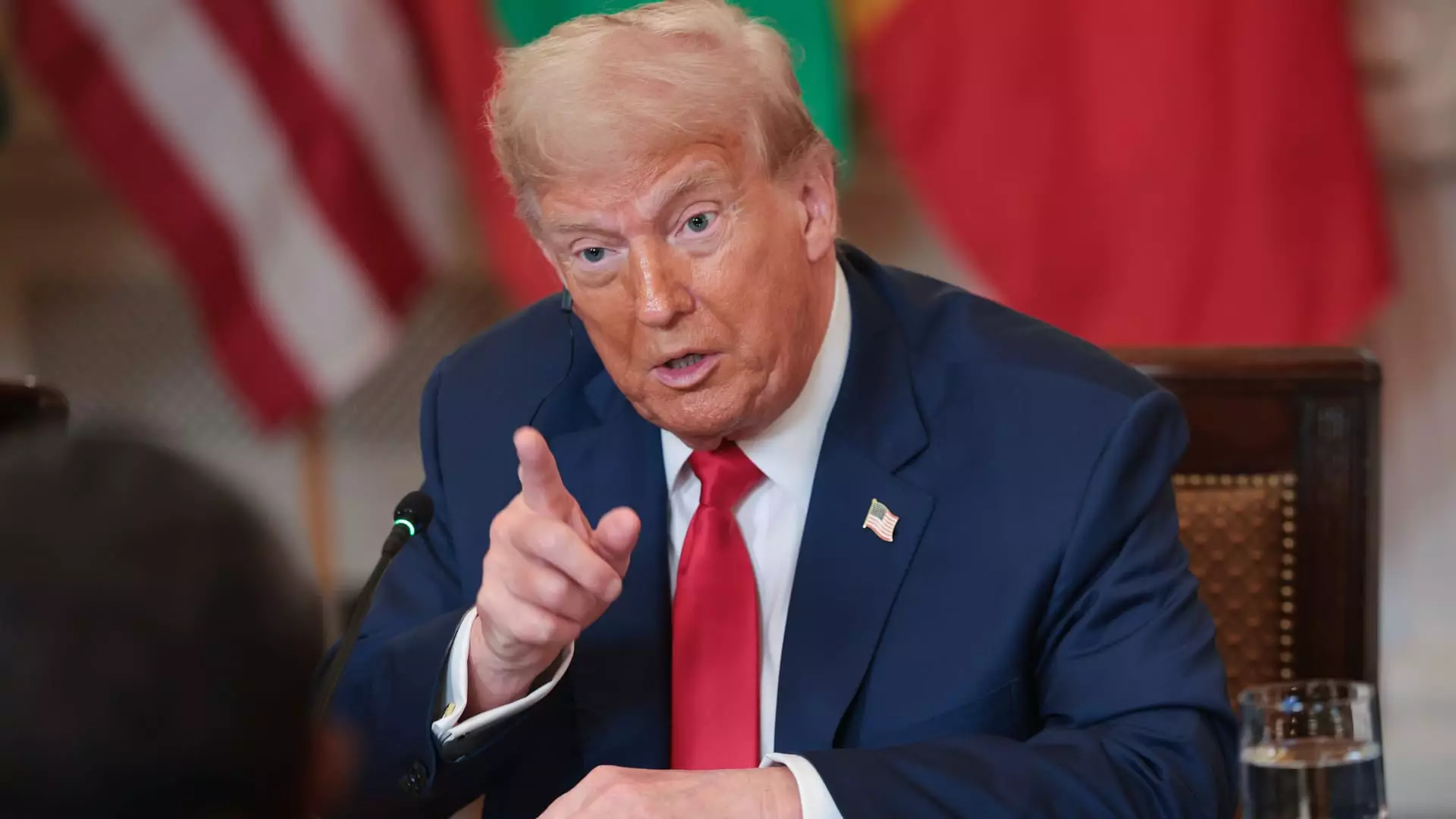In recent moves that seem more like a political tantrum than strategic policy, the United States under Trump’s leadership announced a devastating 50% tariff on imports from Brazil. Far from a nuanced approach to trade, this escalation exemplifies how economic tools are increasingly weaponized for partisan or ideological agendas rather than genuine economic strategy. Tariffs, historically, should serve as a last resort in addressing unfair practices—not as leverage in political disputes or as personal expressions of disdain. The recent decision underscores a shift toward reckless trade practices that threaten to damage long-standing economic ties for short-term political victories.
The U.S., ostensibly a global economic leader, now chooses to threaten one of its partners with tariffs that are not only punitive but also unpredictable. The message is clear: international trade relations under this administration are dictated by personal grievances rather than mutual benefit. Imposing a 50% tariff on Brazil, purportedly due to the country’s internal political crisis, reflects a troubling departure from responsible diplomacy. Instead of fostering cooperation or encouraging fair trade, such punitive tariffs evoke economic destabilization and fuel anti-American sentiment abroad.
Strategic Missteps and Economic Consequences
The timing and scope of this tariff escalation reveal a superficial understanding of international economics. Brazil’s trade surplus with the U.S. was approximately $7.4 billion in 2024—indicating a significant American market for Brazilian goods. Instead of negotiating or addressing specific issues, the U.S. opts for blanket tariffs that threaten to provoke retaliation. Such measures ignore the interconnectedness of modern economies and risk spiraling into trade wars, which ultimately hurt consumers in both nations.
Furthermore, the characterization of Brazil’s recent political trials and judicial independence as “injustices” is a gross misrepresentation of the democratic process. The Brazilian judicial system’s efforts to uphold rule of law should not be manipulated for political leverage. To do so undermines respect for international legal sovereignty and creates a dangerous precedent where domestic legal issues become bargaining chips for tariffs. This approach not only downgrades global diplomacy but also sets a troubling standard—using internal political disturbances as justification for economic punishment.
The claim that Brazil’s trade policies are causing “unsustainable trade deficits” against the U.S. is factually misleading. The reality is that the U.S. maintains a considerable surplus with Brazil. To frame Brazil as an economic adversary based on political reasons rather than genuine trade imbalance indicates a need to scrutinize motivations behind these tariffs. This is not about fair trade but about wielding economic power to press political agendas, risking global economic damage in the process.
The Dangerous Political Messaging and Its Broader Impacts
The rhetoric employed in Trump’s letter—phrases like “international disgrace” and “witch hunts”—are not merely provocative; they are divisive. Framing a judicial process or a democratic electoral system as illegitimate undermines international norms of sovereignty and due process. Such language fosters mistrust and exacerbates global instability at a time when international cooperation is critical to addressing issues like climate change, health crises, and economic recovery.
Allegations of unfair digital trade practices and attacks on free speech are used as pretexts for tariffs, but they reveal more about domestic political narratives than genuine concerns about trade fairness. This politicization of trade issues alienates traditional allies and strains alliances that have historically reinforced stability. The threat to escalate tariffs if other nations retaliate or adjust their own tariffs further demonstrates a reckless approach that prioritizes short-term gains over sustainable relationships.
The broader implication of these policies is a retreat into protectionism, a departure from the multilateral trading system that has fostered relative peace and economic growth since World War II. Such unilateral sanctions diminish trust, discourage cooperation, and enable other nations to pursue antagonistic strategies of their own. The global marketplace is a delicate ecosystem that requires consistency, transparency, and collaboration—not impulsive tariffs driven by domestic political spectacle.
The Moral and Economic Reckoning
In a world increasingly interconnected, the U.S. cannot afford to indulge in reckless trade policies that threaten global stability. Imposing such extreme tariffs based on subjective judgments about internal affairs reflects a troubling disregard for the principles of diplomacy and multilateral cooperation that underpin a healthy international order. While protecting economic interests is legitimate, doing so through destabilizing measures driven by partisan narratives amounts to playing a dangerous game with the world’s economy.
There needs to be a more mature approach—one rooted in diplomacy, mutual respect, and strategic negotiation—not in tariffs that serve only the interests of political expediency. The use of economic sanctions as political revenge, without regard for the global repercussions, reveals a short-sighted worldview that likely will backfire, impacting American consumers, international allies, and the stability of global markets for years to come. Such policies threaten to undo the progress made through decades of careful cooperation and shared prosperity.

